We’ve had plenty of calls from mates asking, “How many PSI is a good pressure washer?” If you’ve ever stood in the aisle at Bunnings, blank-faced in front of a wall of water blasters named things like “ExtremeForce Deluxe 3000”, wondering, “Do I need this much pressure just to clean my driveway?” — trust us, you’re not alone.
Let’s talk pressure in plain terms. PSI — that’s pounds per square inch — tells you how hard the water hits. Pair that with LPM (litres per minute), which tells you how much water’s flowing, and you’ve got the real story behind your machine’s cleaning power. Simple, right?

It’s Not All About Pressure
The pressure range of a washer is only half the story. You also need to look at flow rates (measured in litres per minute or gallons per minute if you’re reading overseas manuals) to figure out whether the thing’s worth its weight in detergent tanks.
Here’s the equation we go by:
Cleaning Power = Water Pressure (PSI) x Water Flow (LPM)
For example, a 2000 PSI electric pressure washer running at 7 LPM is often more effective for cleaning a concrete driveway than a 3500 PSI petrol machine pushing out only 4 LPM. Why? Because water volume clears muck faster than just brute force.
The Window Cleaning Melbourne Crew often spots the aftermath of high-pressure mishaps while on the job — streaked paint, etched glass, the lot.
PSI Sweet Spots: What You Need
Light-Duty Cleaning (1300–2000 PSI)
- Ideal for:
- Outdoor furniture
- Garden tools
- Bicycles and BBQs
- Patio furniture
- Washing the ute (without peeling off your number plate)
- Recommended gear:
- Electric pressure washer
- Electric cold-water pressure washer
- Use a green nozzle (25–40°) for a safe, even spray
- Avoid concentrated nozzles like the zero-degree spray nozzle — they’ll gouge fragile surfaces
This is your classic residential pressure washer territory. Great for light-duty tasks, and it won’t destroy soft surfaces like timber, painted render, or fragile fences.
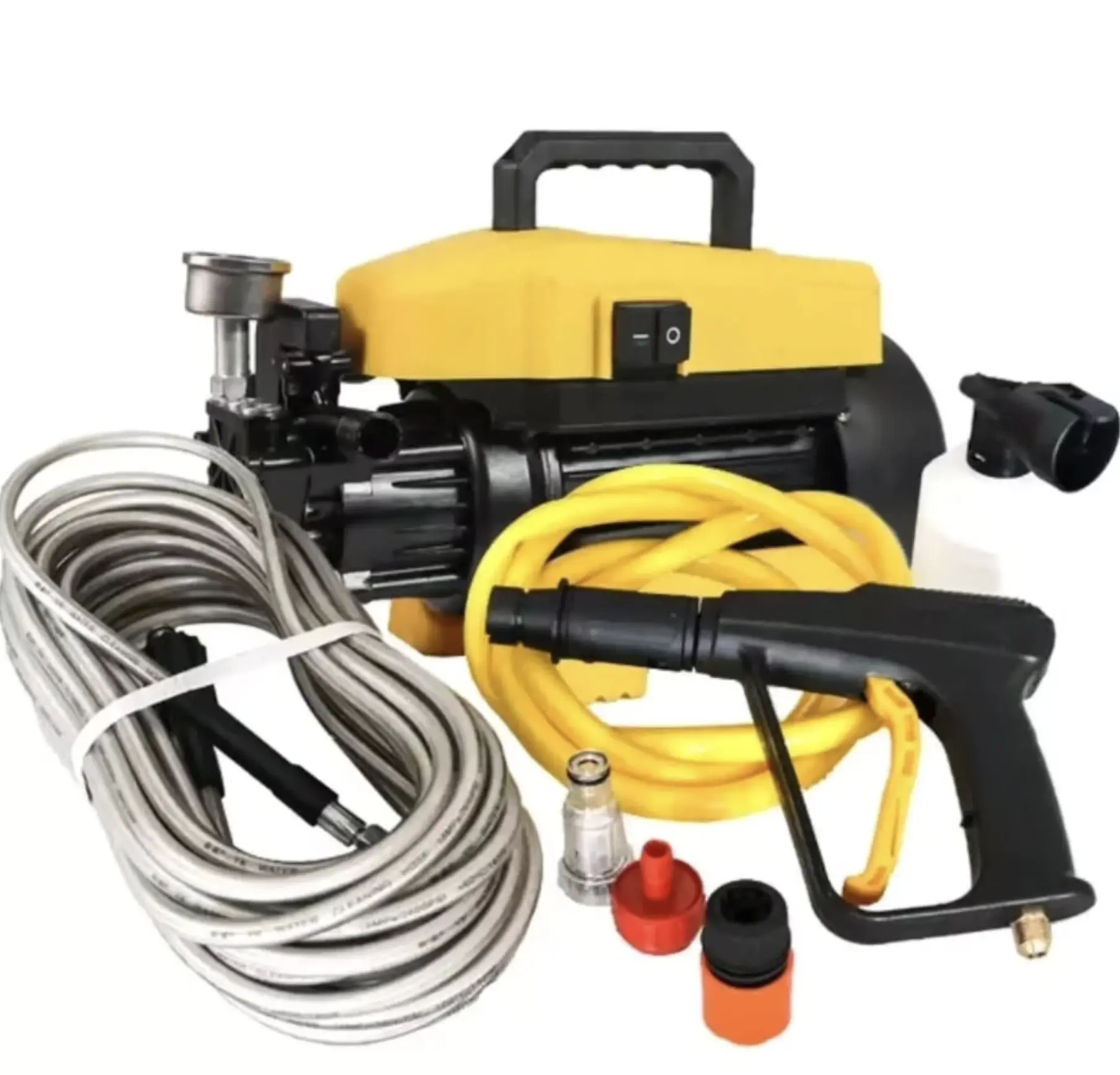
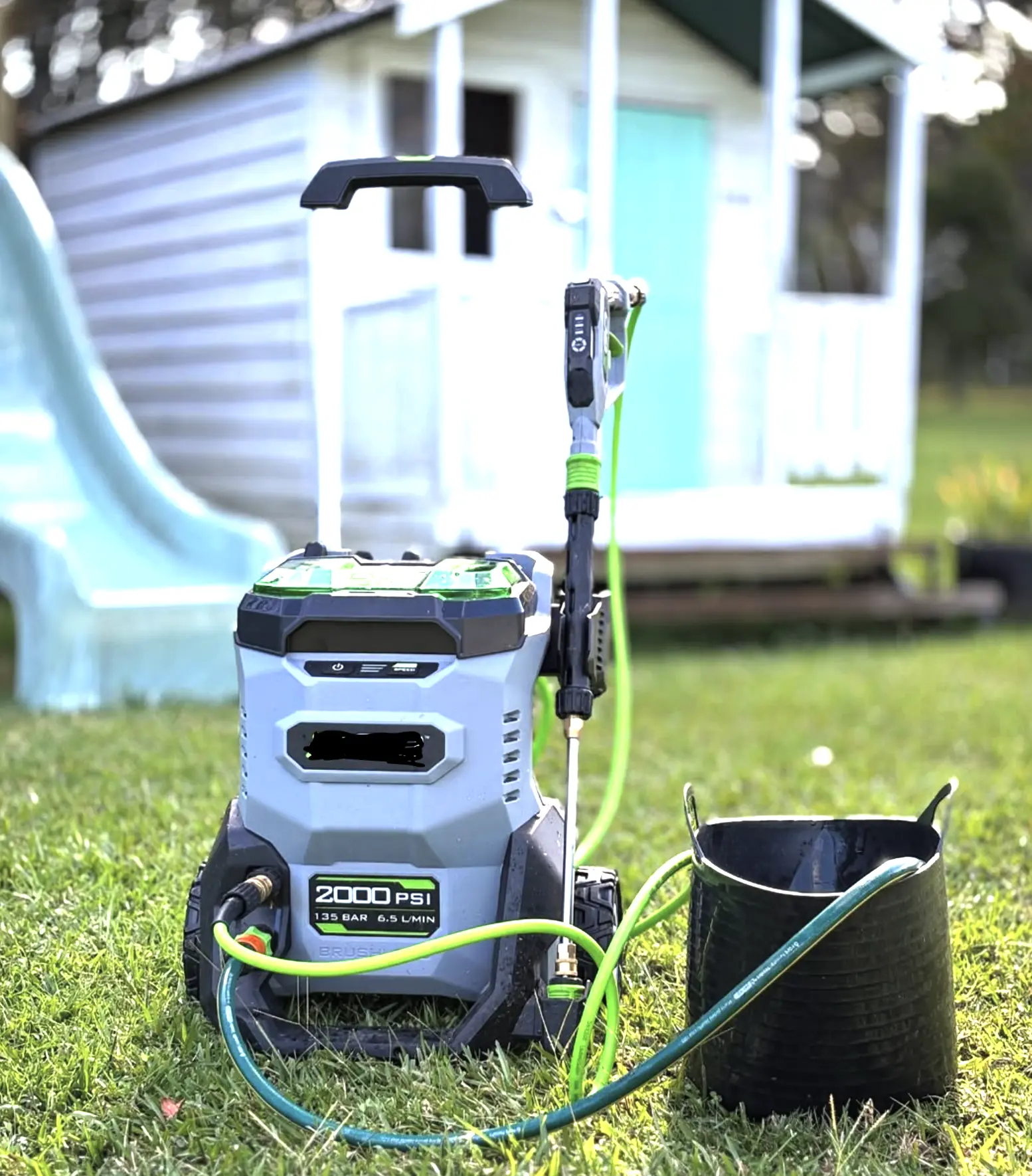
Medium-Duty Cleaning (2000–3000 PSI)
Perfect for:
- Concrete surfaces like small driveways and footpaths
- Cleaning grease and oil stains off BBQ areas
- Outdoor power equipment like mowers
- Driveway cleaner attachments
- General heavy-duty home cleaning
Good options here include electric models at the higher end or cordless pressure washers with decent battery runtime and LPM output. Be mindful of your extension cord if you’re running a corded electric unit — most electric machines don’t like long runs unless they’re rated.
Pair your washer with:
- A 30-degree fan spray pattern
- Surface cleaners for consistent pressure and faster work
- Cleaning chemicals for stubborn stains
- A detergent tank for deeper cleaning calls
Heavy-Duty & Commercial Cleaning (3000+ PSI)
Used for:
- Concrete and surface restoration
- Grease-stained driveways
- Construction equipment
- Farm equipment
- Concrete surface preparation
- Cleaning process in industrial applications
- Commercial projects and commercial cleaning jobs
- Cleaning patios at commercial venues
These units are often petrol pressure washers, commercial-grade pressure washers, or full-blown industrial pressure washers with interchangeable nozzles, rotary nozzles, and built-in flat surface cleaners. Some of these have Gas-Powered Pressure Washers with up to 5000 PSI — great for stripping paint, not so great for timber decks.
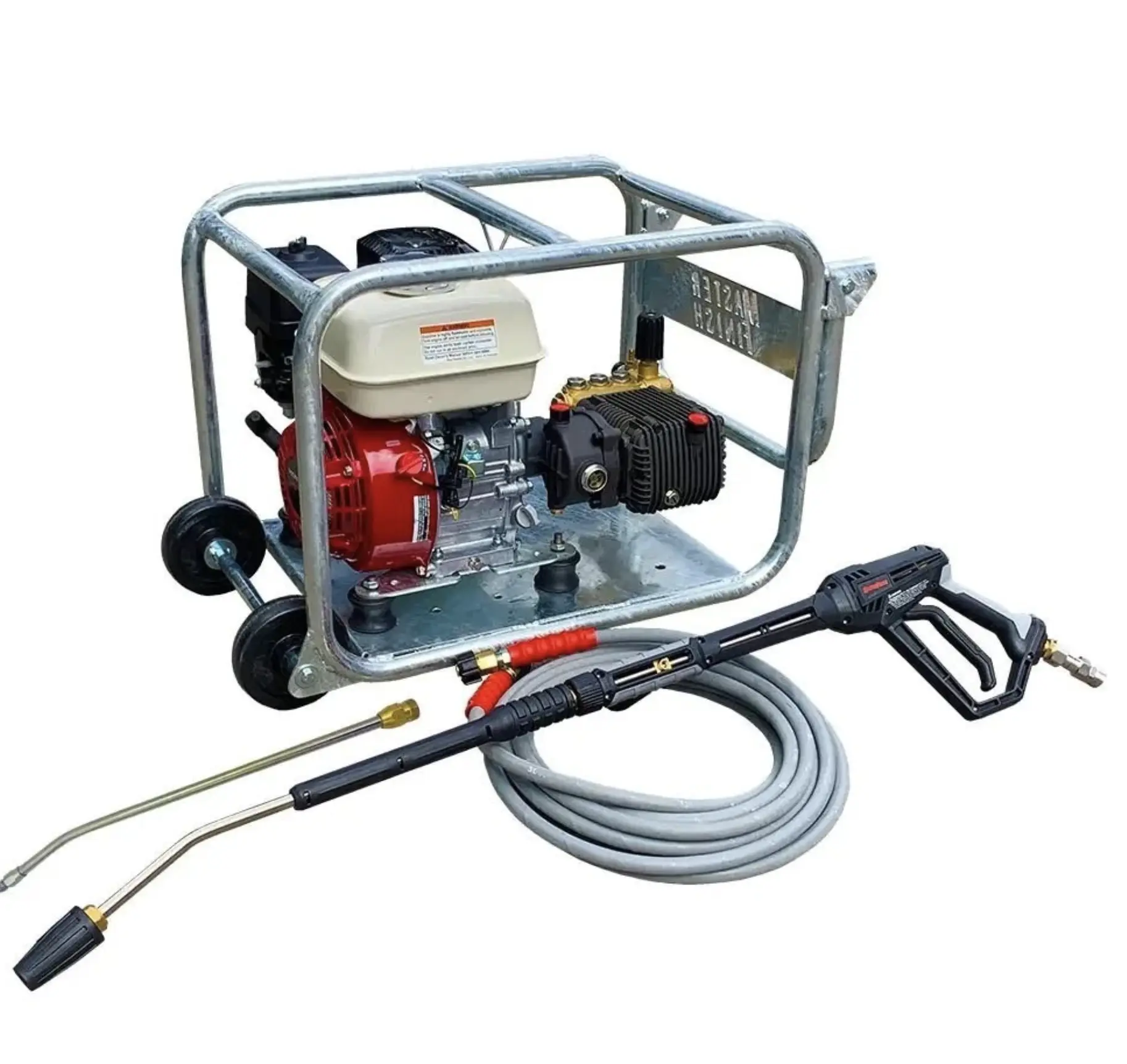
Quick Guide: PSI by Surface Type
| Surface Material | Safe PSI Range | Cleaning Tip |
|---|---|---|
| Car paint & windows | 1200–1800 PSI | Use a 40-degree nozzle, always test a spot first |
| Timber deck | 1500–2500 PSI | Go soft — and don’t use a turbo nozzle |
| Concrete driveway | 2500–3500 PSI | Use a flat surface cleaner for faster, uniform results |
| Brick walls & pavers | 2000–3000 PSI | Watch for soft mortar — use a 25-degree fan tip |
| Metal fences & Colorbond | 1500–2500 PSI | Avoid zero-degree tips — go with a soft angle spray |
| Roof tiles (terracotta) | <1000 PSI | Soft wash or low-pressure detergent clean only |
| Patio furniture (plastic) | 1300–2000 PSI | Gently clean with detergent; avoid direct jets |
| Glass surfaces | 1000–1500 PSI | Clean with a soft wash nozzle only |
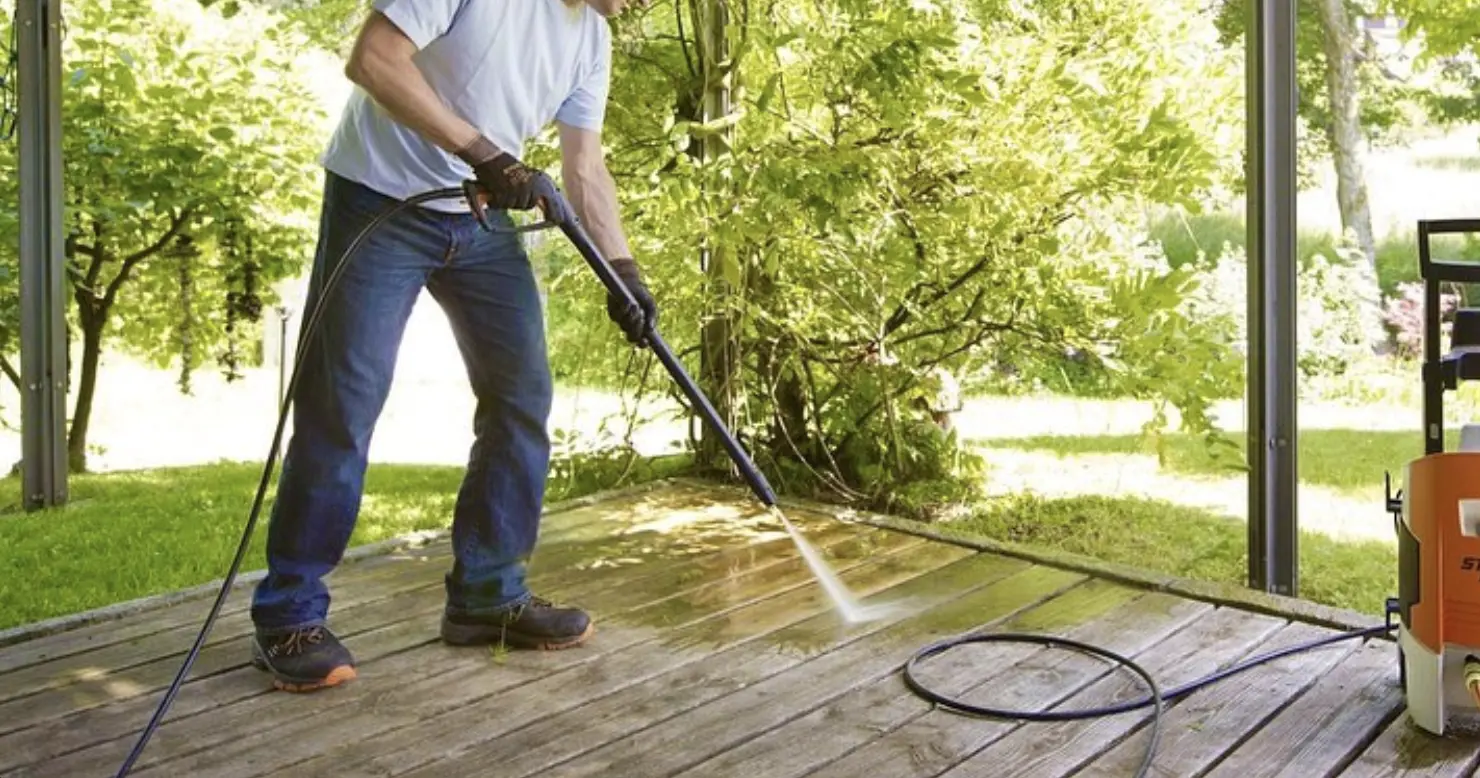
Why Higher PSI Isn’t Always Better
A concentrated setting might feel powerful, but higher pressure doesn’t always mean effective cleaning. Here’s when extreme pressure is just extreme overkill:
- You blast a fragile surface like painted timber and watch the colour wash away.
- You try to clean a roof with 4000 PSI and end up spraying tiles into your neighbour’s backyard.
- You strip grout from pavers and wonder why the moss grows back twice as fast.
Cleaning efficiency is about using the right pressure for the right surface, with the right technique.
Electric vs Petrol
When you’re sizing up pressure washers, the big question always comes down to this: electric or petrol? Each has its strengths — and its drawbacks — depending on the job, the setting, and how often you plan to fire it up.

Electric Pressure Washer
- Pros:
- Lightweight
- Quiet
- Great for small jobs
- Cheaper upfront
- Safer for delicate surfaces
- Cons:
- Tethered by extension cords
- Limited cleaning power
- Not ideal for large-scale concrete cleaning
- Ideal for:
- Suburban homes
- Light-to-medium cleaning jobs
- Cleaning paths, windows, soft surface material, or small BBQ areas
Petrol Pressure Washer
- Pros:
- High PSI and high LPM
- More versatile
- Handles tough dirt and grease-stained driveways
- Great for commercial machines and complex projects
- Cons:
- Heavy
- Loud
- Requires fuel and maintenance
- Can be dodgy in the hands of first-time users
- Ideal for:
- Tradies, commercial settings
- Large property owners
- People cleaning construction equipment, commercial machines, or prepping for paint
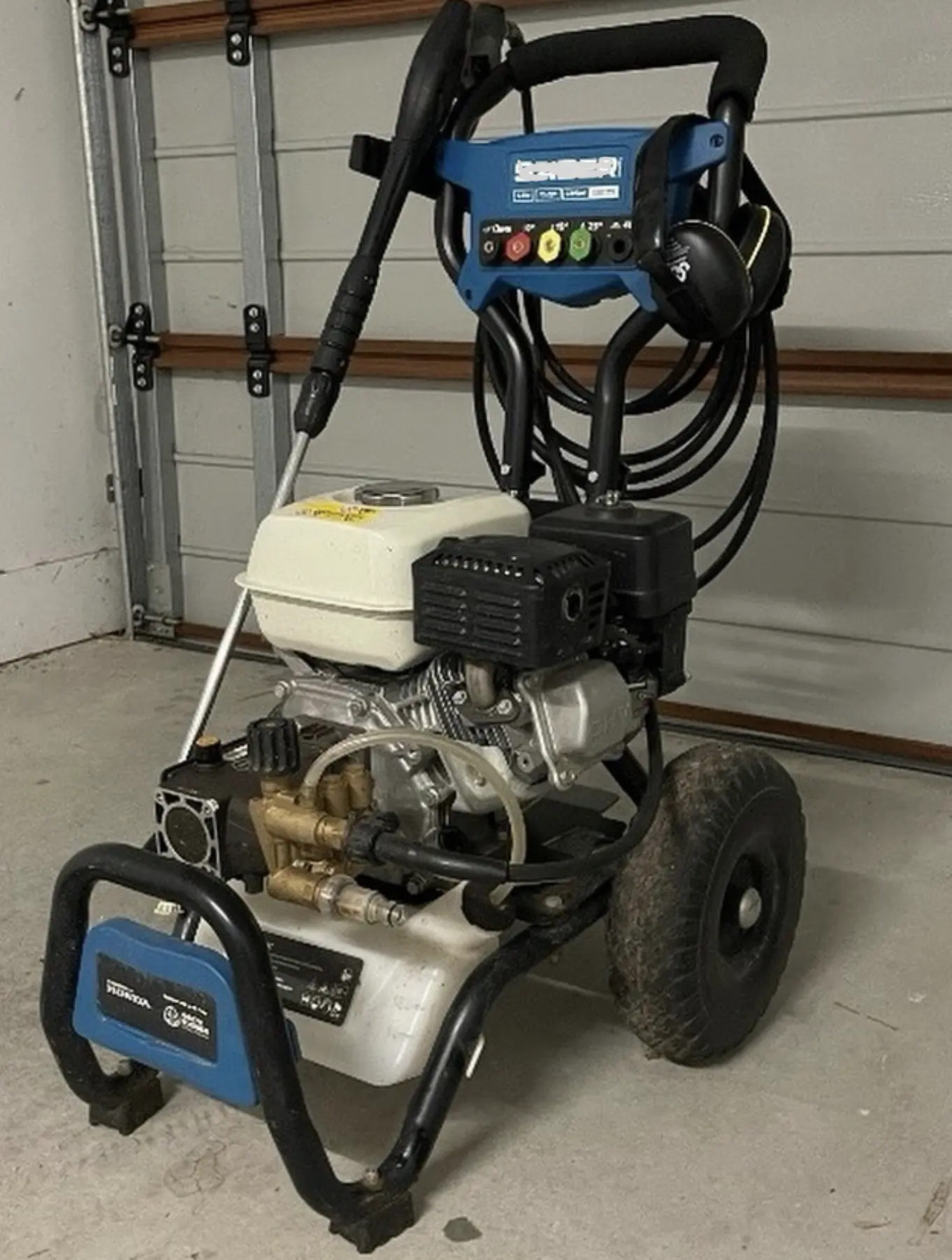
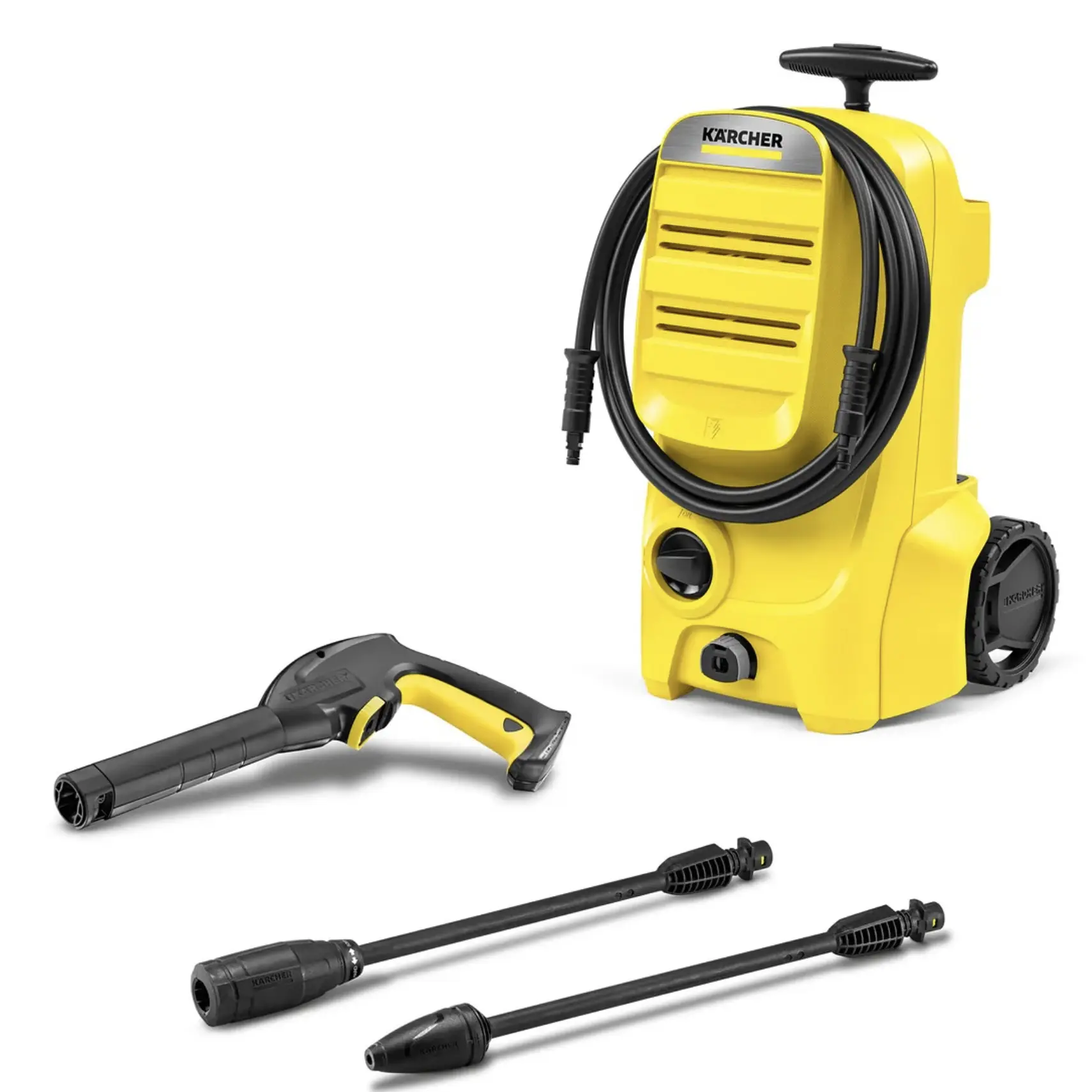
Features That Make Cleaning Easier
- Selection of nozzles: From 0° to 40°, each has a job. Most people only ever need 25° or 40°.
- Detergent tanks: For pre-treating greasy surfaces — especially useful for concrete cleaning
- Cord storage / Cord wrap: A lifesaver for tidy sheds
- Braided hose: More durable than plastic ones that kink like a garden snake
- Washer with detergent tank: Cuts through tough stains on patios and driveways
How Flow Rate Impacts Cleaning Performance
We’ve seen blokes get excited about PSI Electric Pressure Washers with 3000 PSI — only to find they dribble out less water than a mozzie’s sneeze. That’s because the water volume (LPM or GPM) is just as crucial.
Common flow rates:
- 5–7 LPM: Light-duty residential
- 8–10 LPM: Medium-duty
- 10–15 LPM: Commercial or industrial use
More water to surfaces = faster dirt removal. It’s not just about pressure — it’s the cleaning performance that counts.
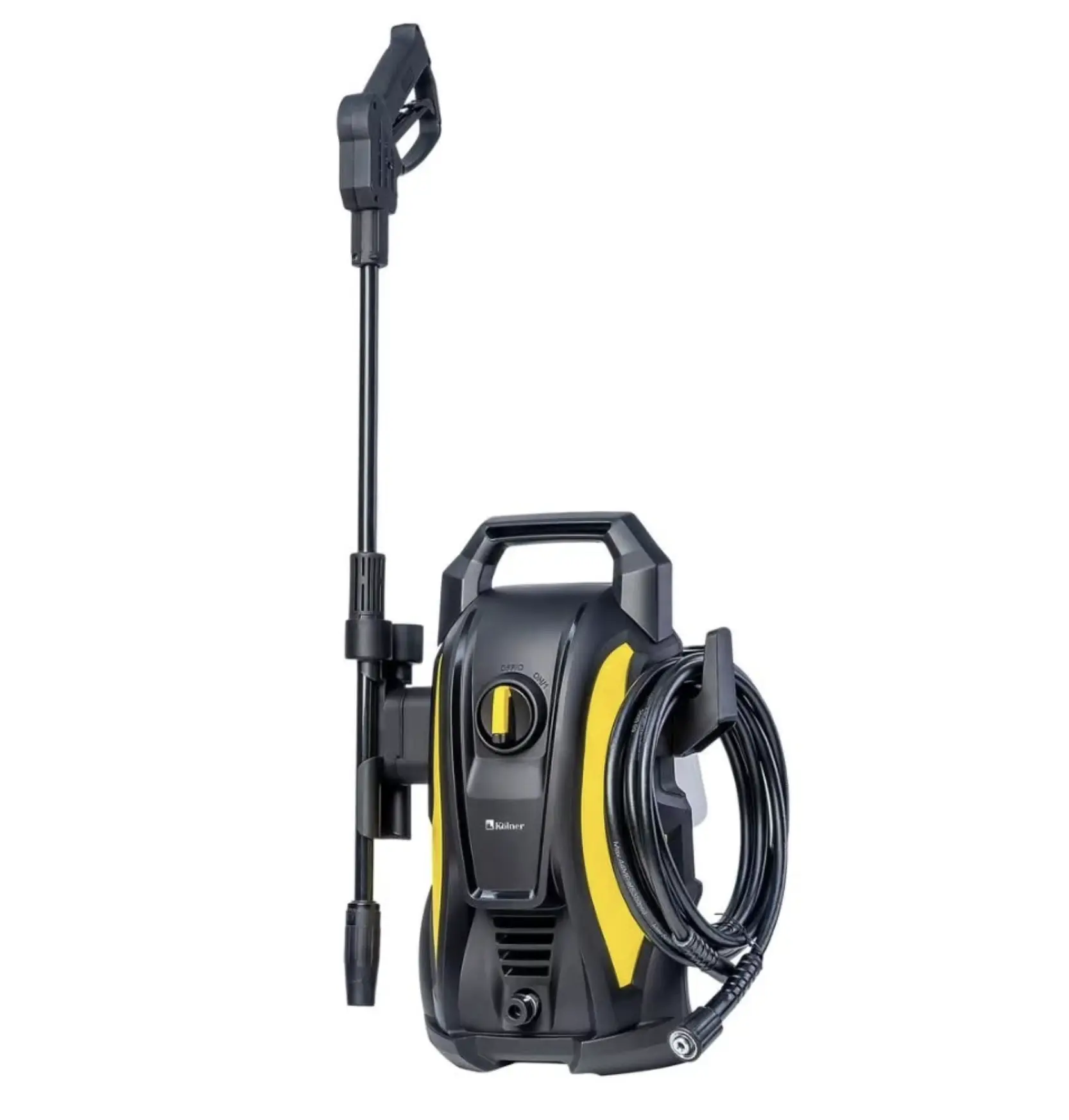
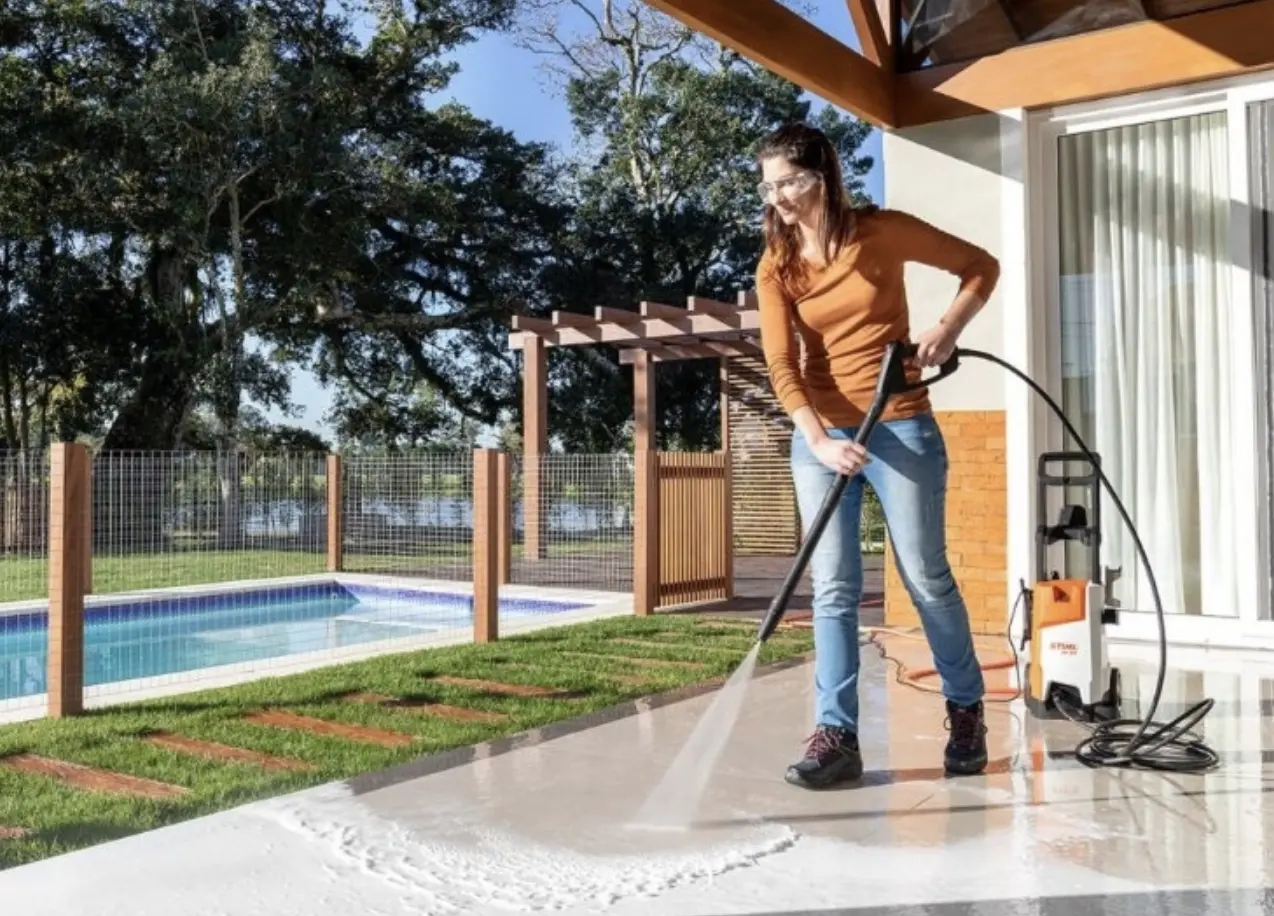
Got Fragile or Mixed Surfaces?
We offer soft wash services for surfaces like:
- Render cleaning
- Heritage timber
- Roof tiles
- Sandstone
- Colourbond Cleaning
Why? Because soft surfaces don’t love high pressure. We apply cleaning chemicals with low pressure, then rinse gently — no damage, no drama.
Don’t Forget Council Rules & Water Usage
Across Australia, councils have varying rules on water pressure and runoff, especially in drought-prone areas. The good news? Pressure washers typically use less water than a garden hose when set up properly.
- Garden hose: 20–30 LPM
- Electric machines: ~5–7 LPM
- Commercial machines: ~10–15 LPM (still more efficient than hosing)
So, if you’re doing commercial cleaning or prepping for appearances for customers, a pressure washer might not just be cleaner — it might be greener too.
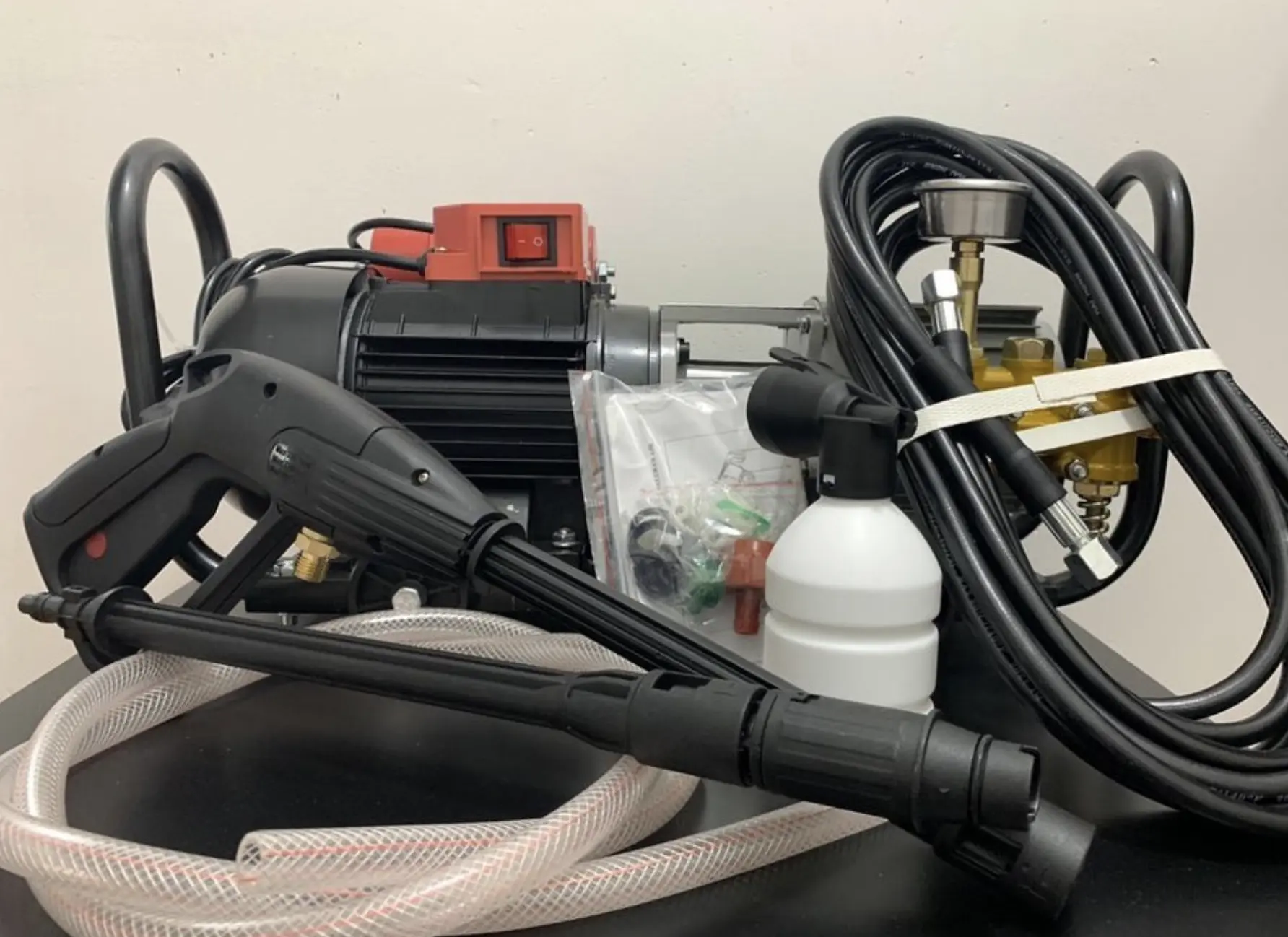
FAQ
What is a good PSI for cleaning concrete?
2000–3000 PSI is ideal for most concrete surfaces, including driveways and footpaths. Add a surface cleaner for a more even result and quicker work.
Can an electric washer clean oil stains?
Yes, if you use a decent unit (2000+ PSI), proper cleaning solution, and pre-soak. But don’t expect it to cut through years of grime on its own.
Is high PSI bad for outdoor furniture?
Yes, especially if it’s plastic, wicker, or painted timber. Stick to 1300–2000 PSI with a 40-degree nozzle and low water pressure.
Do commercial machines always need high PSI?
Not necessarily. For industrial applications, we care more about flow rate, water volume, and cleaning chemicals than extreme PSI alone.
Will it work with low water flow?
Not well. You need a consistent water supply and volume. Low flow = poor cleaning performance, no matter how powerful your commercial pressure washer might be.






